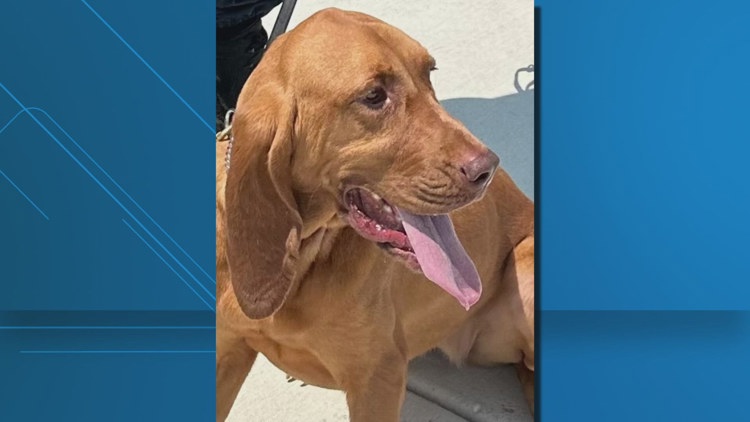"There is no indication of willful neglect with respect to the actions of Mr. Acosta," said the Prince George's County State's Attorney's Office.


WASHINGTON — Prosecutors have dropped charges against a Prince George's County Police officer previously accused mistreating a K-9 officer in his care, adding that the wording in the department's collar policy is vague and even dangerous.
Animal cruelty charges were brought against Corporal David Acosta in August over injuries reportedly found on the neck of a two-year-old bloodhound named Daisy that was assigned to him. He was suspended without pay as the department investigated.
“This situation involving Daisy is appalling,” Prince George's County Police Chief Malik Aziz said in a press conference in August. “She is a part of the PGPD family. I expect that all of our handlers treat their canine partners with the utmost care and concern. To the best of our knowledge, this is the first incident of animal mistreatment in the 60-year history of the Canine Section."
The injuries were discovered on Daisy's neck as officers came to retrieve two canines, Daisy and Spartacus, from Acosta after he was suspended for an unrelated incident.
A veterinarian treated Daisy, who has since returned back to work. The second dog, Spartacus, was permanently reassigned to veteran handlers in the canine section of PGPD.
According to the Prince George's County State's Attorney's Office (PGSAO), charges were dropped after prosecutors found the PGPD policies and protocols around the proper use of K-9 e-collars are "vague, inconsistent, dangerous and flawed." PGSAO has since concluded there is not enough evidence to prove animal cruelty without reasonable doubt.
"Specifically, there is no indication of willful neglect with respect to the actions of Mr. Acosta," a PGSAO press release reads.
Further, prosecutors say while investigating the case they learned the e-collar injures found on Daisy are not an isolated incident.
"Reports from other officers with the department indicated that their canines too, have suffered similar injuries and wounds because of the e-collar issued by the department," PGSAO said. "Simply put, the collar is problematic."
However, it is important to note that the PGPD canine program is not certified, which prosecutors say is necessary to ensure officers follow the proper rules and standards when working with canines.
According to PGSAO, the policy, as written, dictates officer to use the e-collar on K-9s while they are working and should also use it to keep control of the animal while they are off duty. Prosecutors say such overuse puts the dogs in danger.
"Whether it is a human or animal, our office is committed to seeking justice on behalf of the community. Animals are part of a vulnerable population and should be cared for as such," prosecutors said.
PGSAO says they are not working with the police department, recommending PGPD seek certification for the canine program and improve protocols and policies around the e-collar and handling of K-9s.
.png)









 English (US) ·
English (US) ·